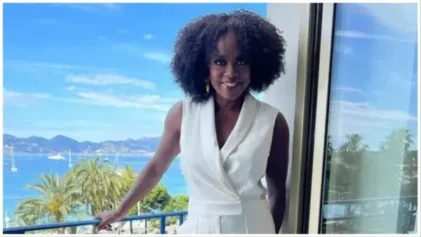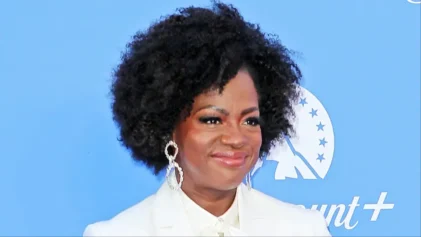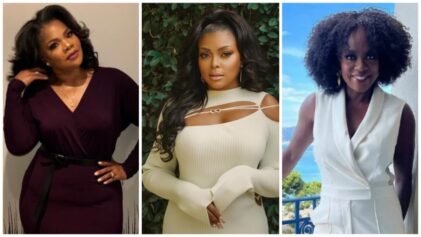Viola Davis has more than paid her dues to become an award-winning actress who is widely respected for portraying characters that feel both real and familiar on both the big and small screens. However, cultivating a career of Oscar, Emmy, and Tony nominations has not been easy. Not even for Davis, who studied at the quintessential performing arts conservatory The Julliard School.
“There are no words to describe the journey, the sweat, the blood, the war, that is being a Black artist and being a Black female artist,” Davis told Essence as part of the publication’s September cover story. Also featured are Davis’ “The Woman King” co-stars Lashana Lynch, Sheila Atim, Adrienne Warren, Thuso Mbedu, and director Gina Prince-Bythewood.
With her latest project, fans will see Davis as the leader of the historical female warriors of the Dahomey Kingdom in Africa. Bythewood has previously shared that it took nearly a decade to bring the film to fruition, from perfecting the script to convincing a studio to get onboard and greenlight the barrier-breaking film. “If people understood what goes on in the room, what goes on in the studio, what goes on in a heart, what freaking dies in us at times,” said Davis, who serves as the film’s biggest female star opposite of actor John Boyega.
In the past, the “How to Get Away With Murder” actress has spoken candidly about the upward hill Black actors trek to get an ounce of the recognition their white peers are often given. Last year, while virtually attending the NAACP Awards, Davis said Black actors belong in the same conversations as white actors, and that she looked forward to the day Black actors no longer have to teach the industry to recognize them.
But in fighting to be seen, Davis notes that competition crops up among actors, making it easy to forget the power and significance of actors of color having unity amongst themselves.
“When they see the carnage of all the Black actors who were out there, even during the Sydney Poitier years, that couldn’t even have an agent because it was nothing out there for them; if they see the blood, sweat, and tears of what it took, not just for this movie, just what our journey is, then they would be on board. They would be on board because they would understand the absolute importance of it,” she said.
She continued by adding that “whatever little jealousies, which is very human because that’s what it is, it’s jealousy. It’s envy. It’s ‘I want to be there.’ It’s that basic human instinct to take someone down because I need to be better than you in order to feel some other importance. That is secondary to elevating the ultimate goal, which is us being seen.”


